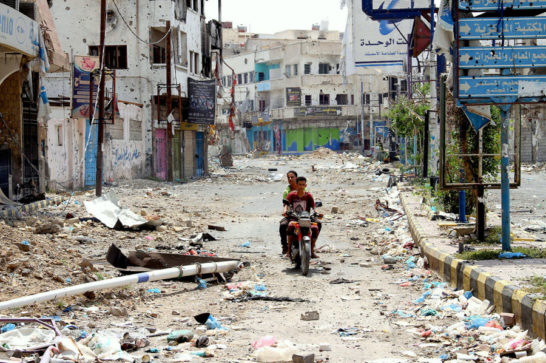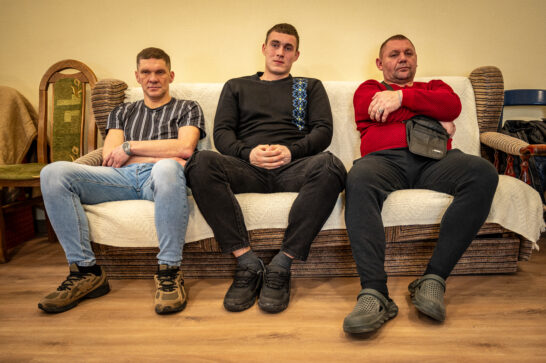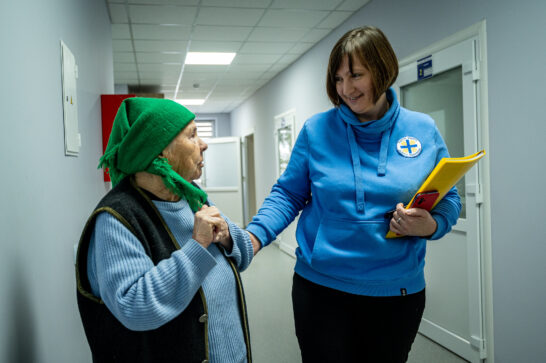In 2022, the UN refugee agency UNHCR announced that an astounding 100 million people worldwide have been forced to flee from their homes. Nearly 30 million of them are refugees.
Of the remainder, more than 53 million are internally displaced people (IDPs). We also hear about migrants, asylum seekers, and people of concern. What is the distinction between these groups? And what kind of support and protection can they count on?
Dangerously misused and politicised
Terms to refer to people who have left their homes are often being used interchangeably and can be dangerously misused or politicised. But the different designations indicate separate legal statuses, with consequent legal obligations and protections. These distinctions are important, for governments, organisations like Cordaid and, crucially, for these people themselves.
According to the 1951 Convention Relating to the Status of Refugees, a refugee is “a person who, as a result of a well-founded fear of being persecuted for reasons of race, religion, nationality, membership of a particular social group, or political opinion” has crossed an international border and cannot return to their home. Refugees receive protection under international law.
Non-refoulement
The principle of non-refoulement constitutes the cornerstone of refugee protection. It guarantees that no one should be returned to a country where they would face torture, cruel, inhuman or degrading treatment or punishment and other irreparable harm.
By contrast, internally displaced persons have not crossed international borders, despite having fled their homes for the same reasons as refugees. IDPs remain in their home countries, but cannot return to their homes for fear of violence or persecution.
As we see above, there are far more IDPs across the globe than refugees, and they face the same issues that refugees do: discrimination, lack of economic opportunities, food and livelihood insecurity, violence, poverty, and exploitation.
Legal obligation
Yet they lack the same rights and protections under international law. Assisting refugees is a legal obligation, but protections for IDPs have for a long time not been similarly enshrined in law. While IDPs do have rights, governments are often unable or unwilling to protect those rights, making IDPs particularly vulnerable.
However, the protection of IDPs is growing. By adopting the Kampala Convention of 2009, the African Union has taken vital steps to strengthen the protection of the rights of IDPs in Africa.
Asylum seekers have fled their homes and claimed protection from international organisations and national governments, but their status has not been confirmed.
Seeking asylum and refuge from persecution is a fundamental human right, as stated in Article 14 of the Universal Declaration of Human Rights. Refugees begin as asylum seekers but not all asylum seekers will be granted refugee status. Those whose requests for asylum have been denied can be sent back to their home country.
We make no distinction
Cordaid works to support refugees, IDPs and migrants in many ways. Both directly, in helping them to meet their immediate needs, and indirectly, by shaping perceptions of migration and helping to strengthen the position of IDPs in their communities.
Despite the legal differences between these groups, Cordaid makes no distinction. Where people are in need, we will support them.
As part of our humanitarian aid programme, we assist both refugees and IDPs affected by violent conflict and natural disasters by providing access to food, clean water and shelter.
A few examples of our work for refugees and IDPs
After the start of the conflict in Ukraine, Cordaid was active along the border regions, providing refugees that fled the country with food and non-food items such as blankets and cooking supplies.
In Ethiopia, Cordaid and local partners have supported those who had become displaced by the conflict in Tigray with access to health care, hygiene kits, and the means to re-establish livelihoods.
Through the Just Future programme, Cordaid works with local partners to promote the inclusion of IDPs in the Democratic Republic of the Congo and South Sudan in local governance, helping them integrate into decision-making processes that affect their futures.
And internationally, Cordaid partnered with member organisations of Caritas Internationalis, the global network of Catholic relief organisations, to promote a positive understanding of migration and sustainable development, encouraging active participation of citizens in development projects.



